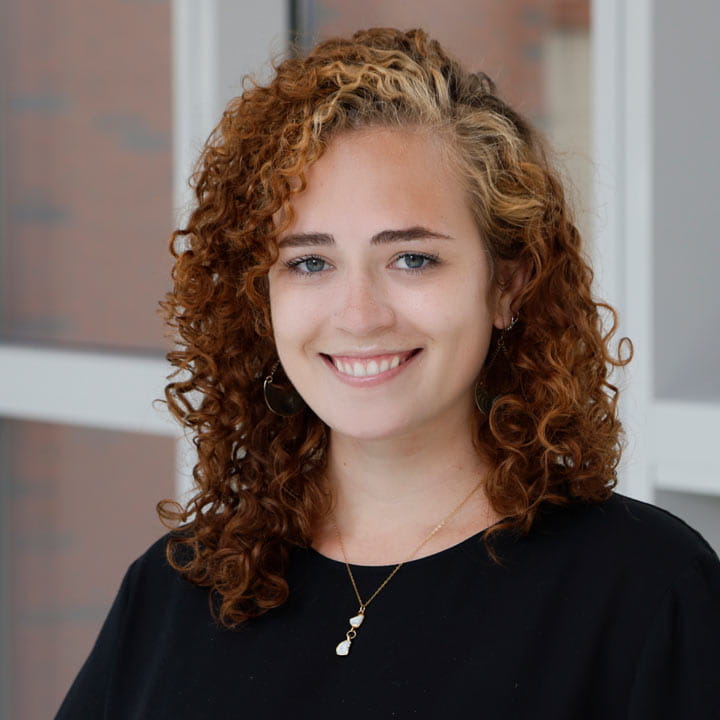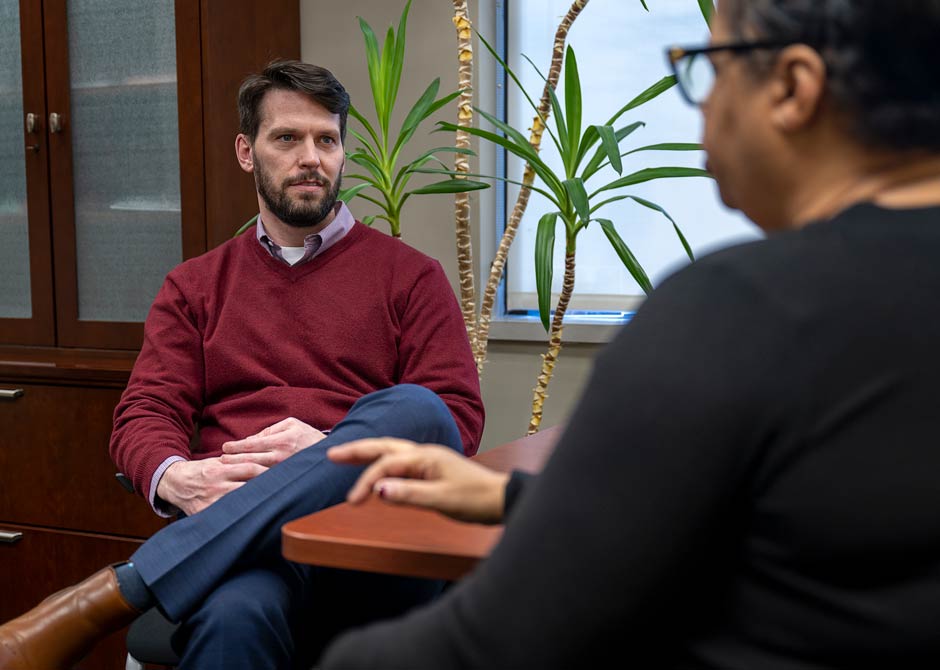Mental and behavioral health conditions, such as schizophrenia or severe mood disorders, that cause psychosis are some of the most disabling and challenging illnesses someone can experience. Add in the fact that there are no cures for these disorders, and it can be a tremendously traumatic and lonely journey for those with psychosis and their families.
At The Ohio State University Wexner Medical Center in Columbus, Ohio, psychosis experts want to change that. EPICENTER and its ever-expanding programs exist to ease the suffering of those with psychosis and to get people back to living the life they want.
If you suspect you or someone you care about is experiencing any level of psychosis, please don’t hesitate to call 614-685-6052 to speak with someone to see if one of our clinics or programs could benefit you. We treat people of all backgrounds and are an LGBTQ+ friendly clinic, so no matter who you are, we will provide the comprehensive care you need to get better.
What is EPICENTER’s early intervention program all about?
Nicholas Breitborde, PhD, talks about the strides EPICENTER is making in helping people who experience psychosis better manage their symptoms.
What is EPICENTER?
Opened in 2016, EPICENTER is one of the largest psychosis programs in the United States, and largest in the state of Ohio. We provide a variety of psychosis treatment programs under our EPICENTER umbrella, beyond early intervention, emphasizing thorough assessment and individualized, evidence-based care.
We have a multidisciplinary team that works together with you and your support network to develop a treatment plan that is both effective and sustainable. Treatments could include:
- Medication management, which can include antipsychotics, antidepressants, mood stabilizers, clozapine and long-acting injectables
- Psychotherapy that may include cognitive behavioral therapy, social skills groups and metacognitive remediation
- Family education and support
- Office-based case management
- Supported employment and education services
- Peer support
- Primary care
- Other interventions as needed, including electroconvulsive therapy
We also partner with community mental health centers around Ohio to set up their own psychosis clinics, using our model. As an academic medical center, we can test, evaluate and validate treatment methods and bring those to counties throughout the state.
Conditions treated in EPICENTER
Because psychosis is a collection of symptoms that can occur in a number of mental and behavioral health conditions, we specialize in treating the following disorders:
- Schizophrenia
- Schizoaffective disorder
- Schizophreniform disorder
- Brief psychotic disorder
- Bipolar disorder (with psychotic features)
- Major depressive disorder (with psychotic features)
We also treat many other conditions related to psychosis as well as people who are at clinical high risk for psychosis.
Ohio State’s psychosis treatment clinics and programs
While our initial psychosis program focused on early intervention and young adults, our research and clinical offerings have expanded greatly over the past decade to include the spectrum of psychosis and anyone living with psychotic symptoms. As such, we offer four distinct treatment paths that provide access to different services.
Our specialty psychosis clinics include:
Risk and Resilience – Clinical High Risk for Psychosis (CHR-P) program
This program is for those showing early warning signs of a potential psychotic disorder, sometimes referred to as clinical high risk for psychosis (CHR-P). For this group, we offer step-based care for ages 12-25, focusing on early intervention and a comprehensive treatment approach. Most people who meet criteria for CHR-P and engage in treatment won’t go on to develop a psychotic disorder and will have an overall improved functioning and reduced mental health symptoms.
Early Recovery – First Episode of Psychosis (FEP) program
This is for those who have had at least a first episode of psychosis, have only been diagnosed with psychosis within the past five years, and are between the ages of 15 and 35. In this program, we aim to follow the Coordinated Specialty Care (CSC) model that has been established nationwide to serve people with a first episode of psychosis, stressing the profound impact initial treatment can have. CSC programs like ours offer a more comprehensive treatment approach composed of medication management, psychotherapy, office-based case management, family support and education, supported employment and education services, and primary care. This has been shown to have improved outcomes with symptom management and quality of life.
Stability and Growth – Longstanding Psychosis program
This program is intended to be a continuation program for those who have been participating in the Early Recovery – First Episode Psychosis program, as well as individuals who are older than 35 who meet eligibility criteria. We continue to offer most of the services listed above to these individuals as needed to help sustain the benefits of interventions received in the FEP program.
New Hope – Treatment-Resistant Psychosis program (including Clozapine Clinic)
For individuals who have not responded adequately to two or more trials of antipsychotic medications, we offer a specialized clinic for safe initiation and ongoing treatment with clozapine, the only medication for treatment-resistant schizophrenia that is approved by the U.S. Food and Drug Administration.
As part of our clozapine clinic, we offer medication management, primary care, group therapy, office-based case management and onsite laboratory testing, as well as access to medication.
Management of long-acting injectable medications
Antipsychotic medications have been consistently shown to be helpful in the treatment of psychotic disorders, both in the initial phase with acute symptoms as well as for continued control of symptoms once they have improved. It can be difficult to take a pill every day, especially for individuals with psychosis who can struggle with understanding the need for ongoing treatment.
Long-acting injectable medications can make being consistent with treatment easier. These types of medication have been shown in the literature to consistently decrease the likelihood of relapse. We offer a full range of long-acting injectable medications in our psychosis programs.
Psychosis research developments
At the heart of our psychosis care is the desire to prevent anyone from experiencing distressing symptoms and provide relief for those who do. That’s why our psychosis experts spend hours each day diligently researching better standards of treatment, alongside their compassionate work with individuals and their families in our psychosis clinics.
As an academic medical center, we have a strong focus on research and innovation, especially as it relates to preventing, diagnosing and treating mental and behavioral health conditions.
Social Workers

Catherine Baughman
Social Worker

Sydney Craig
Social Worker

Amanda Kostyak
Social Worker

Callie Orme
Social Worker

Lisa Thornsberry
Nurse


